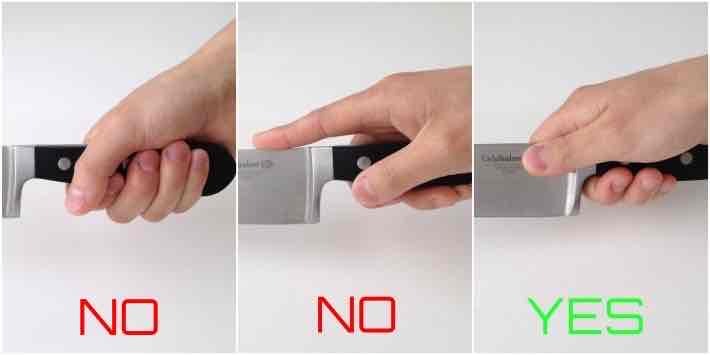- cross-posted to:
- food
I want to learn how to cook. Now that I'm not a lone NEET anymore but in a relationship, I want to reach a level where I can cook a succulent meal for my partner. I want to start simple, with a focus on noodle dishes. Later, I want to move on to rice dishes, but that's for the future.
Hit me with your tips and tricks for someone who has cooked maybe 4-5 times in his life and hasn't cooked in like 10 years. I'm a complete noob.
Also, YouTube channels would be greatly appreciated, especially those focused on simple dishes and easy stuff. I don't need anything complex for at least the next year.
Simple. Quick. Tasty. Thats what im looking for.
Thanks, Hexbears!
I don't want to toot my own horn but I certainly know a thing or two!
So what you want to do is, pour some cereal into the bowl and then add milk; you'll know you've added the right amount of milk when there's about half an inch of bowl left to fill! You can play a bit with this recipe too; for example you can add sweetener or sugar or sweeten the taste! And don't worry too much about popping some honey in there!
Feeds 1
InternetShaquile has a great variety of simple & basic tips/education up to fairly complex. and entertaining.
my tip is learn how to cut onions (Julia Child goes over it in detail in this video)
I found a YouTube link in your comment. Here are links to the same video on alternative frontends that protect your privacy:
If you want to learn how to cook a succulent Chinese meal
 , I recommend checking out the Chinese Cooking Demystified channel on YouTube.
, I recommend checking out the Chinese Cooking Demystified channel on YouTube.You're in good hands, I have a good bit of knowledge myself (no particular order):
1. Nine times out of ten: There is no shame in using technology. I would check your local thrift store for any of these really good kitchen tech:
- Bread maker
- Electric kettle
- Rice cooker
- French Press (not all that high tech, but is a fun way to make coffee when combined with electric kettle)
2. Support physical media and learn how to cook by getting some cookbooks.
-
This may be a huge "no duh", but especially as a beginner by following cookbooks you'll gain a sense of what you are supposed to do while cooking foods in general. If you want to make it extra fun, see if some of your favorite media has an official cookbook: There's one for Avatar, adventure time, The Elder Scrolls, Star Wars, And old school runescape just to name a few.
-
I know there are a lot of vegetarians and vegans on Hexbear, so a good website and cookbook for vegan meals that are (relatively) affordable is Bad Manners
3. You mentioned noodles, so I will walk you through how I make pasta coming from an American from an
 family
family- Salt the water and bring it to a boil
- Put in the desired amount (weighed in grams), and DO NOT BREAK THE PASTA
- boil for roughly seven minutes or longer if you're feeling fancy and are using Bronze Die noodles.
- Find a good pasta sauce recipe and go for it, it doesn’t matter if it’s bad it is better than store bought
- Make sauce in skillet
- When noodles are done, remove excess water in strainer and put them in skillet too.
- Serve
As for more Ramen-like noodles, I find that they only need 4 minutes but taste phenomenal if you fry them up a bit with soy sauce in the skillet. I usually add some oven-baked tofu, some veggies, then drown it in srirarcha sauce and get a great meal out of it.
4. Half the enjoyment of meals comes with making food with others
This tip comes with a bit of a story. A while ago I took a seasonal job somewhere away from my hometown and it was one of the best experiences of my life. It was a low-paying job but I didn't really care because housing was provided and so were meals. That being said, I still took the liberty of doing a lot of cooking, and became sort of known as 'the chef' among my coworkers. One coworker who I became best friends with started making stuff of her own to accompany my pizza that I'd make for the house occasionally and I could have sworn my food tasted better when I made them with her. Therefore, I recommend starting off by seeing if you and your partner want to make meals together sometimes. It's even a recommended part of eating according to the Japanese Government's Ministry of Agriculture, Forestry, and Fisheries
EDIT: I'm bored so enjoy a bit of a lightning round.
- Almost all restaurant seasoning mixes have these four seasonings in common: salt, pepper, garlic powder, and onion powder.
- The stuff you heard about MSG is exaggerated
- A good way to cut back on salt is to try using some acids like vinegar or citric acid
- You want to stock up on two different oils at different smoke points. Olive oil and peanut oil are my go-tos. Smoke points are basically temperatures when the oil becomes less good for cooking and just burns
- NEVER buy lite coconut milk, it's just watered-down regular coconut milk. Just buy regular and water it down yourself.
- Prioritize meals that feature in-season fruits and vegetables. When summer rolls around I love eggplant dishes, for example.
Rice cookers are so good. I hear Instant Pots are good at cooking rice faster than my rice cooker, and also cook beans faster (as it’s a fancy pressure cooker).
My best advice to you is to pick a dish that you really like that you could eat regularly. Try not to worry about particular cuisines or anything like that, just something that you know that you could eat almost any day of the week.
Then find a good recipe (probably the second hardest part of the process), figure out all of the techniques and the info that is either implied or completely omitted from the recipe that simply assumed to be common knowledge (probably the hardest part of the process), and hone your craft on that one dish. Try to space it out so you're only making it about once a week because you don't want to burn yourself out on it.
The next trick is to see if you can find or come up with your own variations on that dish. Then move on to the your next "could eat it once a week for the rest of my life" dish and tackle that.
I think noodles are a good idea but my only hesitation would be that some noodles aren't very forgiving and that noodles can range from a very simple ramen right up to something that's quite fiddly and which demands quite a few skills in the kitchen such as Singapore noodles.
Aside from following your passion and your palate, the first thing I would advise a newbie cook to do would be to learn how to make a simple soup. Not a consommé or a French onion soup but something easy like cauliflower soup or minestrone.
Why? Because simple soups are extremely forgiving.
Didn't fry your onions long enough? No big deal, they're going to simmer for a while so they'll cook through.
Pan too hot and your onions are burning? Throw some broth in and move on to the next stage.
Too concentrated? Add water or milk.
Not flavourful enough? Add more herbs or spices or tomato.
Overcooked? Lol it's a soup, overcooking it is practically a virtue in this situation.
Not confident with managing the temperature of the pot or with stirring? Eh, it's mostly liquid so you don't need to stress about it.
I'll go at the premise here, do you want to learn how to cook or make recipes? Either's fine, honestly, just asking whether you wanna be able to whip up like a banger Spaghetti Bolognese or whether you want to integrate cooking into your life.
If the latter, pick a recipe, read it thoroughly and fully before you do anything else and look up what the weird words you don't understand mean via Youtube Tutorials so you know what they want you doing, then prep all the stuff you need according to the recipe beforehand, then do the steps. If it's not to your liking, pick a different one and have a go until you find one you like and stick with that. There's one major pitfall to be aware of here, mostly to do with equipment, which is times given in recipe can be wildly off compared to your equipment, maybe whoever wrote it has industrial kitchen grade burners and you got the landlord special, maybe your pans are a bit out of whack and don't conduct heat so good, so keep that in mind.
If the latter, after learning a few recipes you'll probably want to go more into understanding cooking as opposed to following recipes so you know what you're actually doing. Why you're sautéeing onions, putting alcohol in a tomato sauce, stuff of this nature. For this I'd recommend nigh everything J Kenji López-Alt has done, as he offers explanations on why you're doing it and the Flavour Bible which also offers helpful tips on how to make something out of "nothing" by teaching you tried-and-true combinations, why they work and how flavour works.
Internet Shaq and CCD are both great.
The best piece of advice I have is leave the food alone when it's cooking. New cooks have a habit of checking the food way too often, stirring it or flipping it every minute. Some dishes do require this, but for the most part your food will be better if you don't.
The piece of equipment that really helped to kick off the development of my cooking skills was an 8 inch chef's knife. Nobody in my family knew how to cook well, and I had the jankiest collection of random hand me down knives when I first started living on my own.
Having one halfway decent knife that can be used for most things really helped. I still have the $40 Victorinox one I bought ages ago, but other brands might make solid ones - I honestly don't know which, though.
I think you would really enjoy "Nat's What I Reckon", check out this 3 minute video on how to make pasta sauce with 4 ingredients. He started making cooking videos during covid quarantine and he has a REALLY laid back approach to cooking.
edit: I just took another look at his channel, start with the covid videos from 4 years ago in the whiter kitchen, very simple recipes in that era.
I found a YouTube link in your comment. Here are links to the same video on alternative frontends that protect your privacy:
A few very general tips from a former line cook:
-
When using a frying pan, bring it and the cooking oil up to temperature BEFORE you put the food in. This will help prevent bullshit from getting stuck on the pan (test this out with eggs you’ll see what I mean immediately)
-
Avoid Teflon and non stick pans. Not only do they cause cancer but they encourage poor habits such as the one I just mentioned above.
-
Hold the knife by the blade not the handle, it’s much safer:
Show
Happy cooking!
Edit: if you want to learn how to flip food in a frying pan (NOT sauce pan) like a pro, just start with a piece of bread and practice flipping it over while holding the handle, it’s all in the wrist.
-








